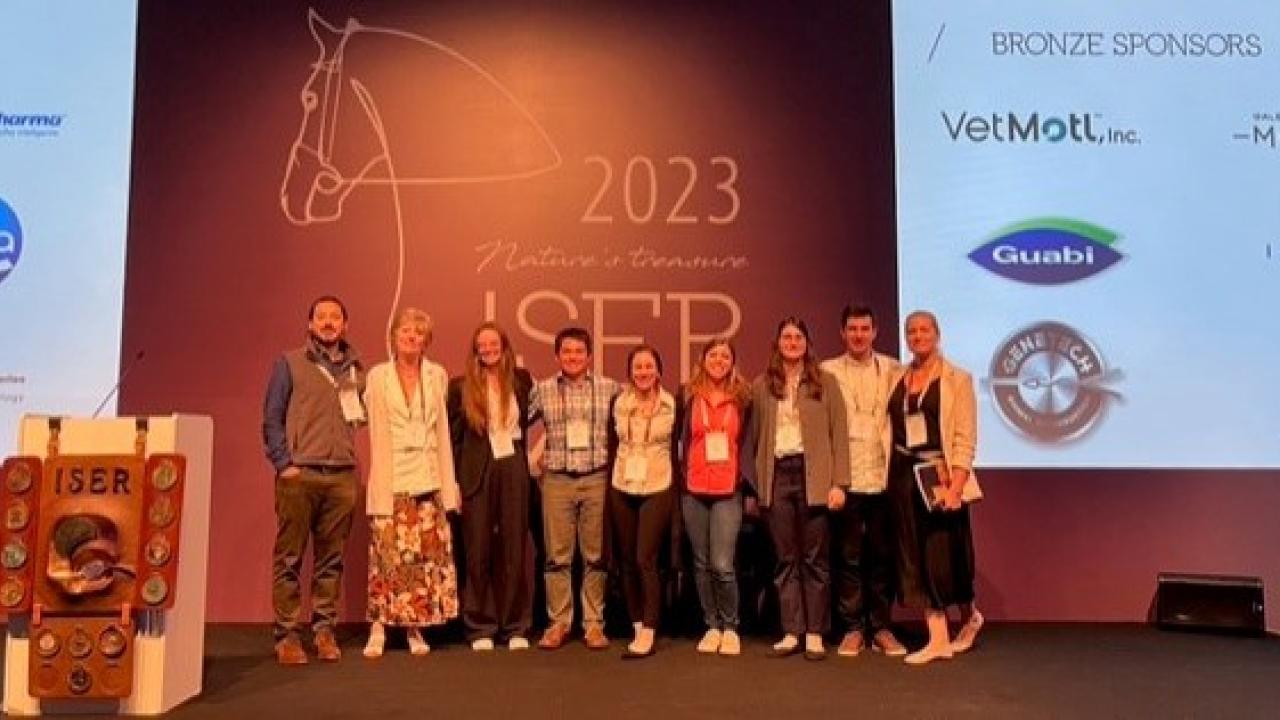
UC Davis Veterinary Scientists Present Research at World’s Largest Equine Reproduction Conference
Ten veterinarians, researchers, and PhD students from the UC Davis School of Veterinary Medicine’s Veterinary Assisted Reproduction Laboratory and the Equine Reproduction Service attended the International Symposium on Equine Reproduction (ISER) held recently in Brazil. More than 300 total attendees focused on equine reproduction were on hand at ISER XIII, the world’s largest gathering of its kind. Nine of the 10 from UC Davis presented research at the conference.
Those who delivered oral research presentations include:
• Thadeu de Castro, DVM, PhD: Embryo-maternal interaction is associated with the location of the embryo during the mobility phase in mares
• Alejandro de la Fuente, DVM, PhD: Gene expression of equine oocytes and cumulus cells, a window to the unknown
• Catherine Renaudin, DVM: Fetal ultrasonography of the distal limb: a new tool to assess equine fetal age and bone development
• Machteld van Heule, DVM (PhD student): The placental microbiome during nocardioform placentitis
• Margo Verstraete, DVM (PhD student): An in vitro model for equine placental research
Those who presented research posters include:
• Pouya Dini, DVM, PhD, PhD: Successful use of sexed stallion semen for in vitro embryo production: a preliminary study
• Soledad Martin-Pelaez, DVM: Molecular effect of holding equine oocytes: a road to cytoplasmic maturation
• Kornelia Omyla, DVM: Persistent stallion-like behavior is rarely associated with changes in hormonal markers in the equine cryptorchid suspects: a retrospective study (within the five selected for Best Poster Award [out of 167])
• Daniela Orellana-Guerrero, DVM: The potential role of Fibrillin 2 in equine placental and fetal development (awarded 2nd Prize Poster [out of 167])
Equine reproduction specialist Ghislaine Dujovne, DVM also attended.
ISER was established in 1974 and is held around the world every four years. It provides a forum for biologists and veterinarians with interests in equine reproduction to exchange views, review current knowledge, and produce guidelines for future research. With little emphasis given to the horse in comparative studies on the biology of mammalian reproduction prior to 1974, ISER was built on the realization that the horse could make an immense contribution to understanding reproductive processes in mammals. Over the past 50 years, the symposium has become an essential part of the calendar of scientists and veterinarians who study reproduction in horses and other equids throughout the world. ISER II was held at UC Davis in 1978.
